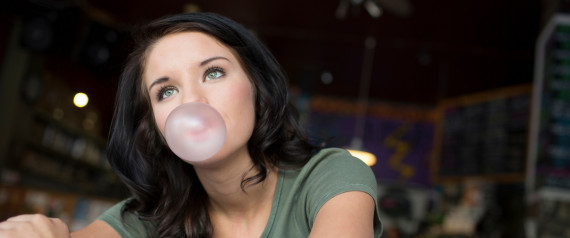
If your teen is an avid gum-chewer but also experiences migraine headaches, perhaps he or she should try quitting the habit, a small new study suggests.
Tel Aviv University researchers conducted an experiment on 25 teen girls and five teen boys, with a median age of 16, who all got chronic headaches (most of them migraine-like). They were lumped into four groups based on the amount of time they spent chewing gum every day, and then all of them were asked to stop chewing gum for one month. After the month was up, 26 of them started chewing gum again, and then researchers followed up with them two to four weeks later.
When the teens stopped chewing the gum[1] for that month, 26 of them reported improvement in their headache symptoms, with 19 people who stopped getting the headaches altogether. When the teens started up the habit after the month was over, 20 of them experienced the headaches again.
Researchers noted that one previous study suggests gum-chewing can lead to headaches because of stress placed on the temporomandibular joint (where the skull and jaw meet), while another study suggests the aspartame in gum leads to headaches. However, study researcher Dr. Nathan Watemberg, of Meir Medical Center, which is affiliated with Tel Aviv University, noted that he thinks the likely reason for the headache-gum-chewing link is the stress on the temporomandibular joint.
"Every doctor knows that overuse of the TMJ will cause headaches," Watemberg said in a statement. "I believe this is what's happening when children and teenagers chew gum excessively."
The findings are published in the journal Pediatric Neurology[2] .
Also on HuffPost:
References
- ^ stopped chewing the gum (www.ncbi.nlm.nih.gov)
- ^ journal Pediatric Neurology (www.ncbi.nlm.nih.gov)
- ^ Send us a tip (www.huffingtonpost.com)
- ^ Send us a photo or video (www.huffingtonpost.com)
- ^ Suggest a correction (www.huffingtonpost.com)

0 comments:
Post a Comment